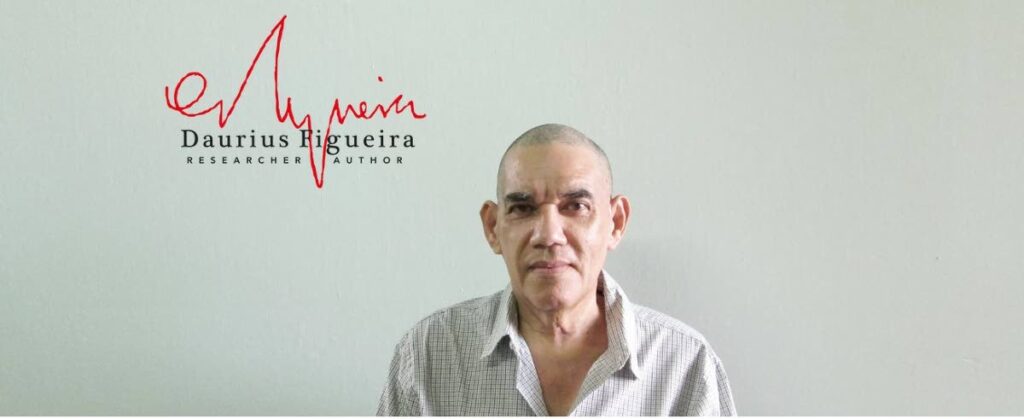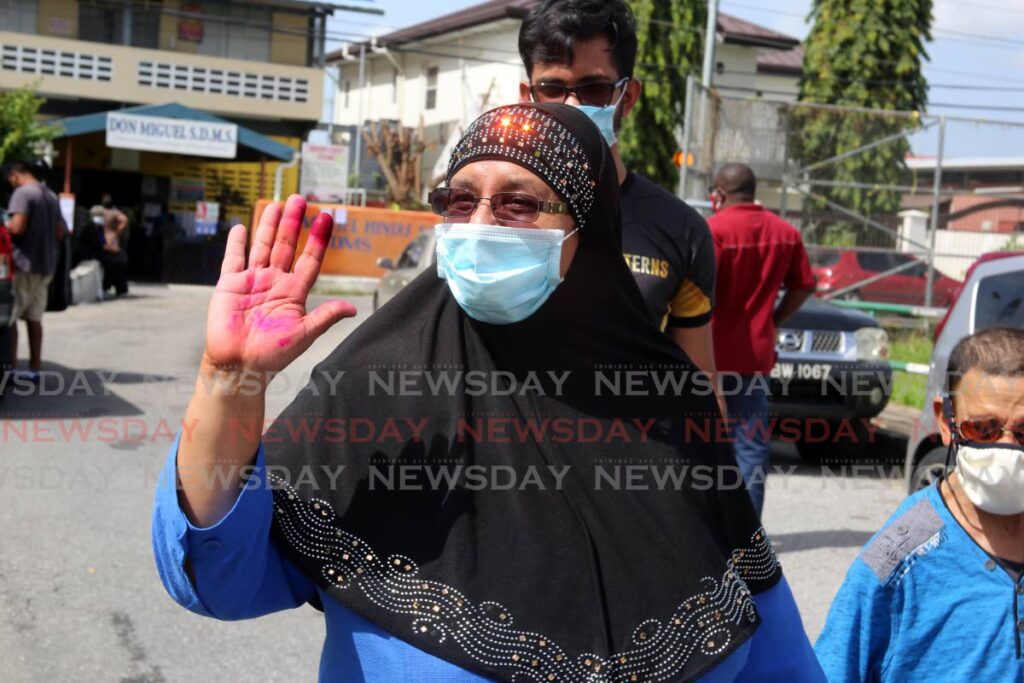Activists: Trini refugees can be part of society again

Criminologist Daurius Figueira is lobbying with the families of the women and children in Syria in a repatriation, rehabilitation and reintegration project to bring them home in a manner that would ensure their safety as well as that of the people of TT.
Giving a brief history, he said in 2014, before it started publicly beheading people and committing atrocities, Islamic State of Iraq and Syria (ISIS) encouraged Muslims from around the world to join them in an idyllic community.
An unknown number of Muslims of all races in Trinidad and Tobago went to Syria and Iraq with their wives and children, many of them leaving without telling anyone. When ISIS collapsed in 2019, people learned there were TT citizens among the over 50,000 at al-Hol who were detained by the US-backed Syrian Democratic Forces (SDF), an alliance of Kurdish and Arab militias. Read wives, children in Syria here.
They also learned that the majority of men died but a large number of the survivors were young children who were carried to Syria and Iraq by their parents and 31 who were born of Trinidadian parentage.
Within this group of 73 children – 38 from TT, 31 born in Syria, and four in Iraq – at the al-Hol, al-Hawl and al-Roj camps, there are also orphans. So the 24 surviving women are taking care of both their children and those without parents.
They live in plastic tents through bitterly cold winters and temperatures of up to 50 °C in the hotter months. When cold, heaters are used which sometimes ignite the tents, when hot, the sun heats the ground, the plastic and the air, and there are sometimes floods.
There are water and food shortages and poor sanitation. International humanitarian organisations feed them daily and armed people patrol the fences.
“There is this predatory social order in the camps where it’s survival of the fittest. The strong get the food and the weakest get cast aside.”
In addition to the deplorable living conditions, the detainment camps are now becoming war zones as ISIS members attack the camps.
“The issue now is that from the fourth quarter of 2021 into the first quarter of 2022, the Islamic State has launched a guerrilla war against the camps, so they are attacking the camps to take control of them and people in the camps are dying.”
A few months ago ISIS attacked al-Sina prison in al-Hasakeh ,which houses men and boys 12 and over.
“It is reported that some 200 young boys died in that attack by the Islamic State and there were Trinidadian boys among them. But the SDF, to date, has refused to give official figures on how many persons died in the attack on the prison and where they came from.”
Figueira said there were men in separate camps who were not captured as fighters but captured as they fled ISIS before it fell. Some of these are part of sleeper cells within the camps that usually attack from the inside, while others attack from without.
He noted that the US has made repeated calls for the countries of origin to come to take their people since 2019.
“TT, since 2019, has made no attempt to do so. TT has never even sent an official delegation to visit the camps, locate our people, and confirm their identities.”

Figueira said, “TT now belongs to a shrinking group of countries who are refusing to take back their people. And TT sticks out in the group because we are becoming the recalcitrant third-world nation.
“The reality is TT had the largest per capita delegation in the Islamic State. The figure for Muslims – men, women and children – who left TT is closer to 300 than the 130 people say.”
He said the SDF cannot continue to defend the camps from attacks and do not know who is in sleeper cells so suppression in the camps is getting worse.
With the situation getting more desperate, he believes the US will not keep the refugees there forever and the time will come when America will put all TT nationals on a military plane and drop them off at Piarco.
“When that plane lands and all those people walk off that plane, then the sh-t will hit the fan! Because what are you going to do with them? And you can’t separate the children from their caregivers. What we need is orderly repatriation so they can be processed, assessed, rehabilitated, reintegrated and then move on from there.”
The families of the women and children are calling for the government to do its duty. They would like the government to send an official delegation to the camps, locate TT nationals, verify their identities, confirm they are TT citizens, and begin the process of repatriation by arranging travel documents for them to return home.
“You must have an intervention measure prepared beforehand, understanding the difference between intervention for the children and that for the women. Remember those children have been severely traumatised because, from the time they left here all they've known is war, and the ones born in Syria, that is all they know so you have to be very careful about how you interact with them,” said Figueira.
He said the repatriation, rehabilitation and reintegration project has people working on plans for each step.
Figueira, trained in addiction counselling at Brown University, Providence, Rhode Island, US, created a rehabilitation plan, and mediator Khalil Saif are working on a reintegration plan.
“We want people to know we are very, very aware of our obligation to the nation to ensure public safety. That is uppermost in our mind.”
He said the group is willing to work with the government on rehabilitation and reintegration. They are also willing to contribute towards the costs of bringing them back, and housing them in a way that would facilitate rehabilitation and reintegration. They have also called on volunteers to facilitate this.
“The citizens of TT who have families in the camps are masters of their destiny. They are the ones who will be doing all the projects to achieve the goals they set for themselves.
“From the time ISIS fell, they started putting things together, writing and seeking meetings with relevant ministers, and they took legal action. They do the groundwork and put together the entire effort and those like myself just volunteer to help.”
Attorney Nafeesa Mohammed has worked with the relatives and was part of the team representing the relatives in the 2021 local High Court matter in which Justice Joan Charles dismissed a claim by families of the women and children against the State for their repatriation.
Charles said she did not have the jurisdiction to order the State to approve their repatriation, and that the process required action by the government.
Speaking to Sunday Newsday, Mohammed said the relatives even signed a document expressing their willingness to co-operate with the State and any agency involved.
“If national security (ministry) wants to pitch tents and put the whole army and police force in front, the families will co-operate. But allow them to come home and reunite with their families.
“These children and women are suffering. Some of the women are injured, and they have not been involved in criminal activities. They are just in a war zone and are more victims than perpetrators than anything. They were just pursuing a utopian belief of living in an Islamic state while some of them did not even know where they were going. And when they arrived it was a different story.”
She said a change in legislation is not necessary to repatriate them, just political will.
She gave the example of Felicia Perkins-Ferreira, whose two sons were returned to her through an international NGO after their father took them to Syria. The children were reintegrated into society and are not a threat to anyone, she said.
“The families respect the role of law enforcement and they don’t want to make anyone uncomfortable but this is their children and grandchildren and they are prepared to help and to do whatever it will take with regard to rehabilitation.”
She said the families are located around the country including Diego Martin, Port of Spain, Barataria, Kelly Village, Couva, Claxton Bay, Rio Claro, Maloney, Warrenville and Longdenville. And many Muslim groups have the resources and agreed to help in terms of doctors, lawyers, nurses, teachers, psychologists and other professionals.
She added that one Muslim man has a building with 68 apartments and is willing to house the returning citizens for their quarantine period.
Mohammed said former attorney general Faris Al-Rawi does not understand the Muslim community and so tried to draft a bill criminalising the women and children before they even arrived. She said he never attempted to resolve the issue even though numerous requests were made for discussions with the authorities. Read government's position on refugees in Syria here.
She said if the government agrees to repatriate those citizens, it would open the doors of the administrative authorities in the camps since many people are willing to help get them out, including the US military.
“These children and women need protection, not persecution.”


Comments
"Activists: Trini refugees can be part of society again"